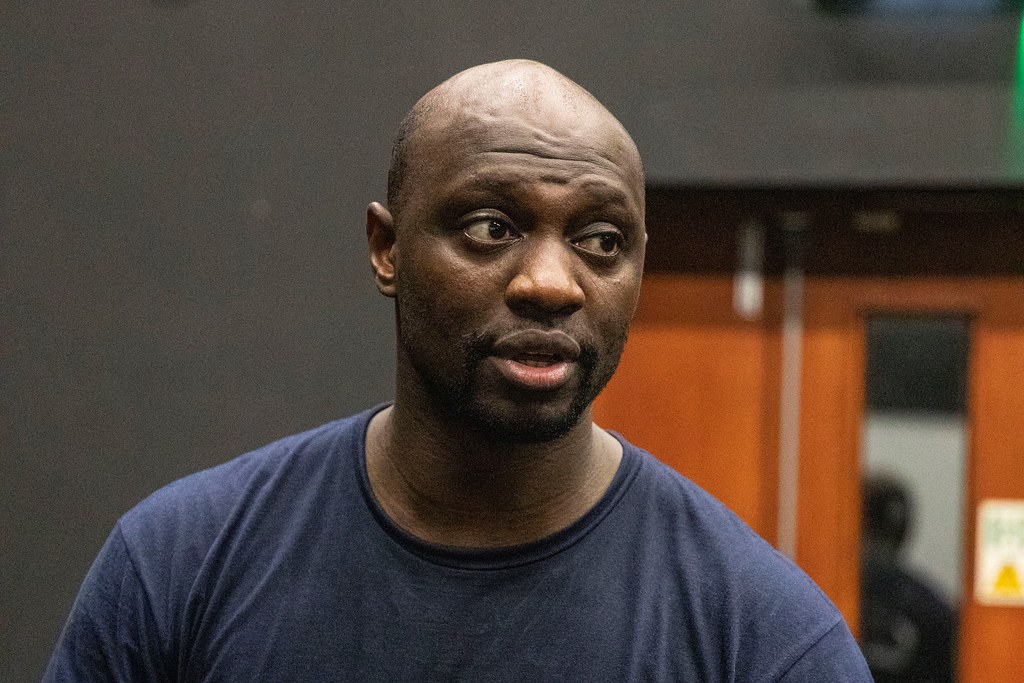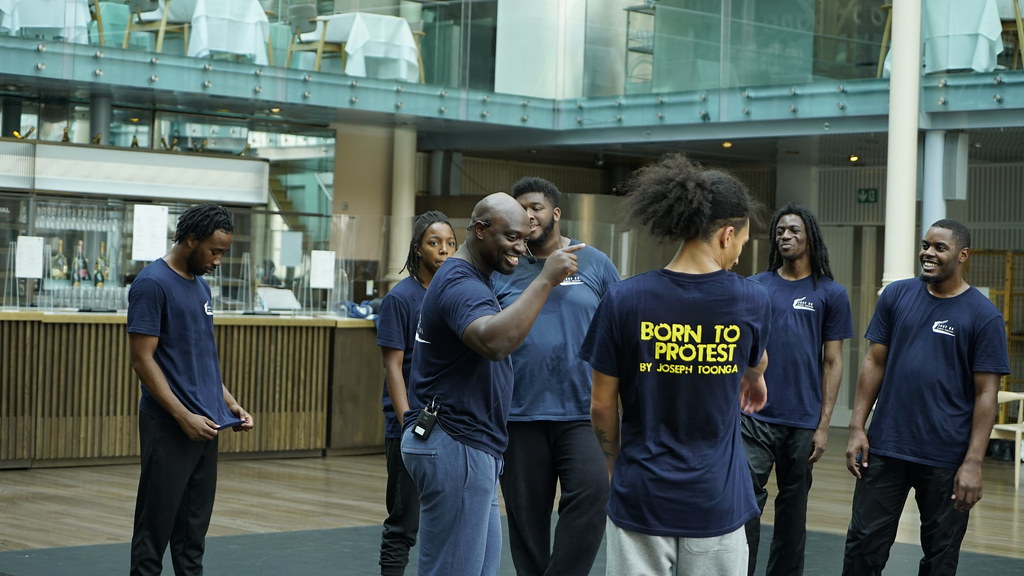News

Joseph Toonga: ‘My return to the Main Stage feels surreal.’
Joseph Toonga: ‘My return to the Main Stage feels surreal.’
In Conversation with The Royal Ballet’s first Emerging Choreographer
In Conversation with The Royal Ballet’s first Emerging Choreographer
Since his appointment as the Company’s first Emerging Choreographer last year, Joseph Toonga has been busy. Rehearsals are underway for his new work, which will have its world premiere on the Main Stage in November as part of The Royal Ballet: A Diamond Celebration.
'It’s been a lot about collaboration,' Toonga says. His own artistic practice is rooted in hip-hop, using the genre to tell stories that address racial stigmas and stereotypes. 'What I do isn't familiar to the dancers’ bodies, and what they do is not familiar to my body. So we must work together to find something familiar – a language that allows us to connect in the studio.'
Under the mentorship of Resident Choreographer Wayne McGregor, Toonga has been slowly building a relationship with the Company and its dancers. ‘Wayne and Kevin [O’Hare] have really helped to integrate me. I think people here now understand what I do and know me as Joseph, not just Joseph the choreographer.’
But Toonga’s relationship with the Royal Opera House actually predates this moment in his career. ‘I first performed on the Main Stage when I was 17, in a youth project with Wayne. So now to return, as a maker, feels surreal.’
The new work, which will be heavily influenced by Krump and hip-hop music, features 13 of the Company’s dancers. It is essential to Toonga that the process of creation goes both ways: ‘It’s as much about me learning their practice as it is about them adapting to mine.’
Citing The Royal Ballet’s work with contemporary choreographers such as Crystal Pite and Christopher Wheeldon, Toonga says, ‘My history is different. [The new work] will have a certain roughness and indifference, requiring the dancers to put aside some of the things they have been taught, and allow something that may be uncomfortable in their bodies to become comfortable. It’s really good to see them embracing it and wanting to do it.’
As for Toonga, he’s learning about ‘incorporating self-care as a discipline’ into his own practice and understanding the rigorous way in which ballet dancers look after their bodies and prioritise physical health. ‘Everything is about recovery and treating your body correctly: making sure you rest and build good habits.’
Toonga is thrilled that his work will be given its premiere in a programme that will be broadcast live to cinemas around the world. ‘It’s nerve-racking but exciting because it’s more exposure for the work. What’s important is that it allows more access for those who may not have come to the theatre.
Improving access to the arts – and particularly to dance – is one of Toonga’s guiding principles. Outside The Royal Ballet, he is also Artistic Director of his own hip-hop dance organisation called Just Us Dance Theatre and works as an independent freelancer under the name ‘Joseph Toonga creates’.

Each year, Just Us Dance Theatre nurtures young artists on a local and international scale through three different artistic development programmes. Beneficiaries of these programmes get access to mentors and opportunities that help them hone their craft. ‘When I was younger, people gave me opportunities to make mistakes, and I think it’s about having the understanding that not everyone comes from a recognised dance background.
‘I always want to understand that all people's journeys are different: some people require financial help, some people require artistic help. Others may just require having someone who can see them at their level.’
As part of his mission to expand access to the arts, Toonga also heavily considers the social value of his work. One way he does this is by involving the community in his initial creative process through participatory research methods such as interviews. ‘Having an audience group in those early stages, made up of people outside the arts, helps. They respond in the most natural, blunt way. It helps me simplify and find substance in things.’
His most recent work, Born to Exist: the woman I know, centres on the Black and ethnic minority female experience. For this, he sent out questionnaires and had conversations with a wide range of Black women. Using those responses, the group ‘started to ask more questions of ourselves to find commonality: what kind of body language should we explore to show this feeling? What was the most prevalent theme? What was the main human emotion that people were expressing?’
For Toonga, dance needn’t have a straightforward narrative, instead he focuses on ‘moments...the hints and glimpses into people’s journeys, discovering and investigating people’s natural responses to build a story.’
Born to Exist is the third instalment of his Born to Manifest trilogy. The first two instalments, Born to Manifest and Born to Protest, were performed in the Linbury Theatre earlier this year. They addressed the Black British male experience and were informed by similar research methods involving conversations with real people.
Born to Exist – extracts of which have been performed in London, Swansea and the Netherlands – will open on 4 October at the Oxford Playhouse. As with all his work, Toonga is keen for people to recognise the wider social impact of the work. Alongside it, he is working with three afro-Brazilian female creatives on a social programme – Young, Gifted & Black – to empower low-income Black female teenagers in Rio de Janeiro through dance.
Toonga says, ‘To me, that’s what dance is meant to be. It’s meant to innovate and inspire, and has a power beyond itself, which it should be proud to showcase.’
Joseph Toonga's new work is part of The Royal Ballet: A Diamond Celebration. Find screening dates here: roh.org.uk/cinemas. Born to Exist begins its tour in Oxford on 4th October. Find a venue near you.
Each year, Black History Month marks an international period of observance and reflection on the key figures, events and heritage of the African Diaspora.
During October, the Royal Opera House celebrates the talent and significant contributions of our global majority artists, staff and collaborators who continue to help critically shape a diverse future both in our theatre and across the performing arts sector.
This Black History Month we are proud to host Ballet Black, the pioneering dance company founded by Cassa Pancho in 2001 to open up the dance world and provide dancers of Black and Asian descent with a platform for their talent. Now one of British ballet's best-known names, Ballet Black will perform Gregory Maqoma's Black Sun alongside Say it Loud – a new ballet choreographed by Cassa Pancho herself, which charts the story of this trailblazing dance company. These performances mark the 20th anniversary of Ballet Black's association with the Royal Opera House. Find out more.
Royal Opera House Covent Garden Foundation, a charitable company limited by guarantee incorporated in England and Wales (Company number 480523) Charity Registered (Number 211775)
